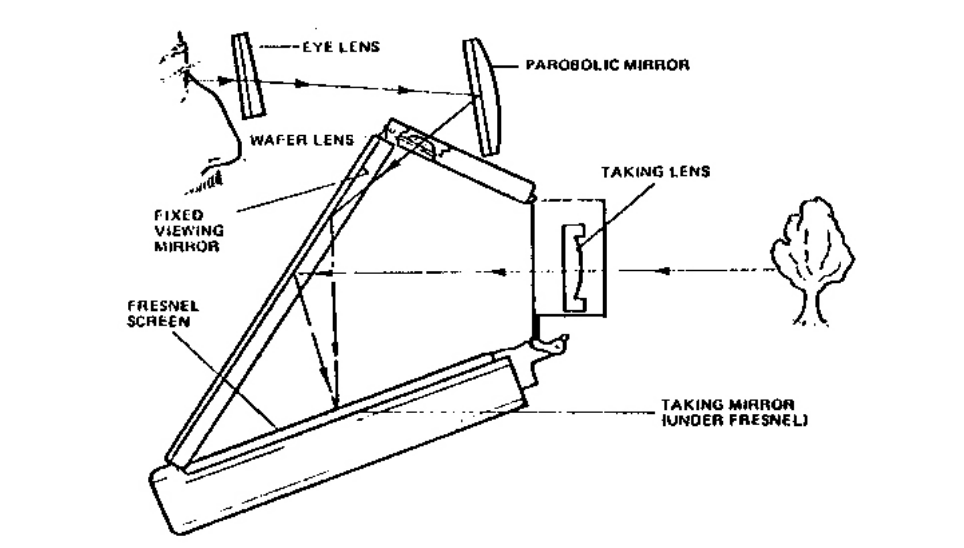
II - THEORY OF OPERATION
A general description of the camera and the
sequence of its functions is contained in
Section I. In that section, detailed analysis of
individual assemblies and electrical circuits was
minimized so that emphasis could be placed on
the intenelation-ship of various functions. In the
following paragraphs, the individual groups of
components are described in greater detail. The
description are presented in the sequence in the
commponents were mentioned in Section I.
Power for the drive motor, the shutter electronics,
and the ash array is supplied by a specially
designed 6 volts battery incorporated in each
10 exposures lm pack. When the pack is
inserted into the camera, two contacts pads
on the bottom surface of the pack engage two
spring-loaded contacts on the inner bottom
surface of the camera bottom plate. From these
two points, it is distributed to its destinations by
the copper foil strips of a ex circuit on the outer
surface of the bottom plate.
The lens employed is a four element, glass lens
of f/8 aperture with a focal lenght of 115mm. It has
a focusing range of innity down to 10,4 inches.
Focusing is accomplished by movement of the
front element only. Helical threads in the lens
mount provide the linear lens elemet movement.
Operation is by means of a geared focus wheel
at the top of the shutter housing. There is no
manualy adjustable diaphragm associated with
the SX-70 lens.
The battery has adequate capacity to expose
all 10 lm frames with at least six months of
expected shelf life.
When the camera is erected to picture taking
conguration, the subject can be viewed through
the collapsible viewnder. Figures 2-1 and 2-2
show the two optical paths in the camera. Note
the direction of the arrows. Reected light from
A. INTRODUCTION
C. LENS
D. VIEWING AND EXPOSING SYSTEM
B. POWER SOURCE
Figure 2-1 Viewnder optics (viewing)


















